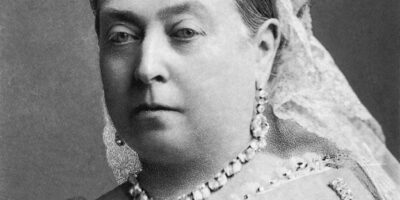
Louis blessing the division of the Carolingian Empire in 843. Author is unknown. Wikimedia commons
Top 10 Facts about the Signing of the Treaty of Verdun in 843
The Treaty of Verdun was agreed upon on 10th August 843 in Verdun, Francia where three parties were involved; Charles II, Lothair I, and Louis II. The treaty led to the division of the kingdom into three which included the surviving sons of the emperor Louis I as well as the successor of Charlemagne.
The treaty came in at the end of about three years of civil war and turned out to be the culmination of the negotiations that had lasted for more than one year. The division that resulted from the signing of the treaty became the beginning of a series of partitions that led to the dissolution of the empire which was created by Charlemagne.
The partitioning has been seen in forecasting the formation of the various modern countries of Western Europe. The Treaty of Verdun also became the first of the four partitioning treaties of the Carolingian Empire which was later followed by the Treaties of Prum in 855, Meerssen in 870, and Ribemont in 880.
Below are the top ten facts about the signing of the treaty of Verdun in 843
1. The Treaty led to the Division of the Carolingian Empire

Louis blessing the division of the Carolingian Empire in 843. Author is unknown. Wikimedia commons
The main purpose of the Treaty of Verdun was to ensure proper division of the entire Carolingian Empire. This was after the death of Charlemagne who was the founding father of the Carolingian Empire and passed it on to his only surviving son Louis the Pious.
When Louis the Pious was of age, although he wanted his kingdom to remain cohesive he divided amongst his sons so that each had his kingdom to govern. Lothair who was his eldest son was given the title of emperor but his power was severely curtailed.
2. Lothair was Forced to Admit Defeat
After Louis, the Pious divided his kingdom amongst his three sons he gave the title of emperor to the eldest son Lothair. His brothers were however against him and his imperial power was severely curtailed.
After the death of Lothair, his eldest son tried to regain his power as the emperor but his brothers joined forces against and a bloody civil war ensued. Lothair was eventually forced to accept the defeat and several extensive negotiations took place. The Treaty of Verdun was the result of the negotiations and it was signed in August 843.
3. Lothair was allowed to keep his title as Emperor

Lothair. Photo courtesy of Wikimedia Commons
After Lothair accepted the defeat and signed the Treaty of Verdun, he was allowed to keep his title as emperor. However, according to the terms of the treaty that were signed, he did not have any real authority over his brothers.
According to the term of the treaty, Lothair received the central part of the empire which is current Belgium, parts of eastern France, western Germany, much of Netherlands, a good portion of Italy, and most of Switzerland.
4. The Treaty of Verdun was a Sign of Divisible Inheritance
The Treaty of Verdun became a clear sign of the old Frankish customs of the divisible inheritance among the sons of the reigning king instead of primogeniture. In their customs, the eldest son did not have the entire right to take leadership of the kingdom but had to be divided among other sons. The division however made it very difficult to have a single ruler who would resemble Charlemagne’s empire.
5. Charles II Received the West Frankish Kingdom
Charles II who was the king of West Francia and later king of Italy and the emperor of the Carolingian Empire received the West Frankish Kingdom. He however received the kingdom on behalf of Pepin II who was the youngest brother to Lothair. Pepin II was granted the kingdom of Aquitaine but remained under Charles. The land which he received later came to be known as the Kingdom of France.
6. Louis II was Allocated the East Frankish Kingdom

Louis II. Photo by Hans Krell. Wikimedia commons
Louis II who was the brother to Lothair was allocated Francia Orientalis which was a successor state of Charlemagne’s empire ruled by the Carolingian dynasty.
After the signing of the Treaty of Verdun, he was guaranteed the kingship of all the land located on the east of the Rhine. He also received the lands east and north of Italy which were altogether referred to as East Francia.
The land that he received finally came to be the High Medieval Kingdom of German which was the largest portion of the Holy Roman Empire.
7. Lothair’s Sons Inherited his Kingdom after his Death
After Lothair passed on in 855, his part of the kingdom was divided among his three sons. The first son inherited the land in Italy as well as the father’s claim to the throne. The part of the north of the Alps which did not have a name was inherited by the second son. The Lower Burgundy and the Upper Burgundy were also inherited by the third son.
8. The Treaty of Verdun has a Beautiful Memorial Monument

Treaty of Verdun Memorial. Photo by François GOGLINS. Wikimedia Commons
Since the Treaty of Verdun was very significant among the people of France, there was a need to establish a beautiful monument to recall the treaty. The monument serves as a good source of history, especially for visitors and residents.
9. The Treaty Ended the Three-Year Civil War
The Treaty of Verdun was the end of the civil war that had existed between Lothair and his younger brothers. Although Lothair had taken the role of the leader of the entire kingdom, he faced several obstacles from his brother. The battle continued for three years until he finally accepted the defeat. To end the three years civil war, the Treaty of Verdun was used to determine what each of the brothers would acquire.
10. Kings were Unable to Establish Firm Rule over Lothair’s Kingdom
Several kings tried to establish a firm rule over Lothair’s kingdom but it proved difficult. This was a result of frequent battles between present-day France and Germany. The two-state were however powerful but still, none of them could retain the kingdom firmly.
The Treaty of Verdun played a very significant role in ending the war between the three brothers over the kingship. The treaty also showed that the elder brother was the sole ruler of the empire but he did not have any power over his younger brothers.
Planning a trip to Paris ? Get ready !
These are Amazon’s best-selling travel products that you may need for coming to Paris.
Bookstore
- The best travel book : Rick Steves – Paris 2023 – Learn more here
- Fodor’s Paris 2024 – Learn more here
Travel Gear
- Venture Pal Lightweight Backpack – Learn more here
- Samsonite Winfield 2 28″ Luggage – Learn more here
- Swig Savvy’s Stainless Steel Insulated Water Bottle – Learn more here
Check Amazon’s best-seller list for the most popular travel accessories. We sometimes read this list just to find out what new travel products people are buying.









